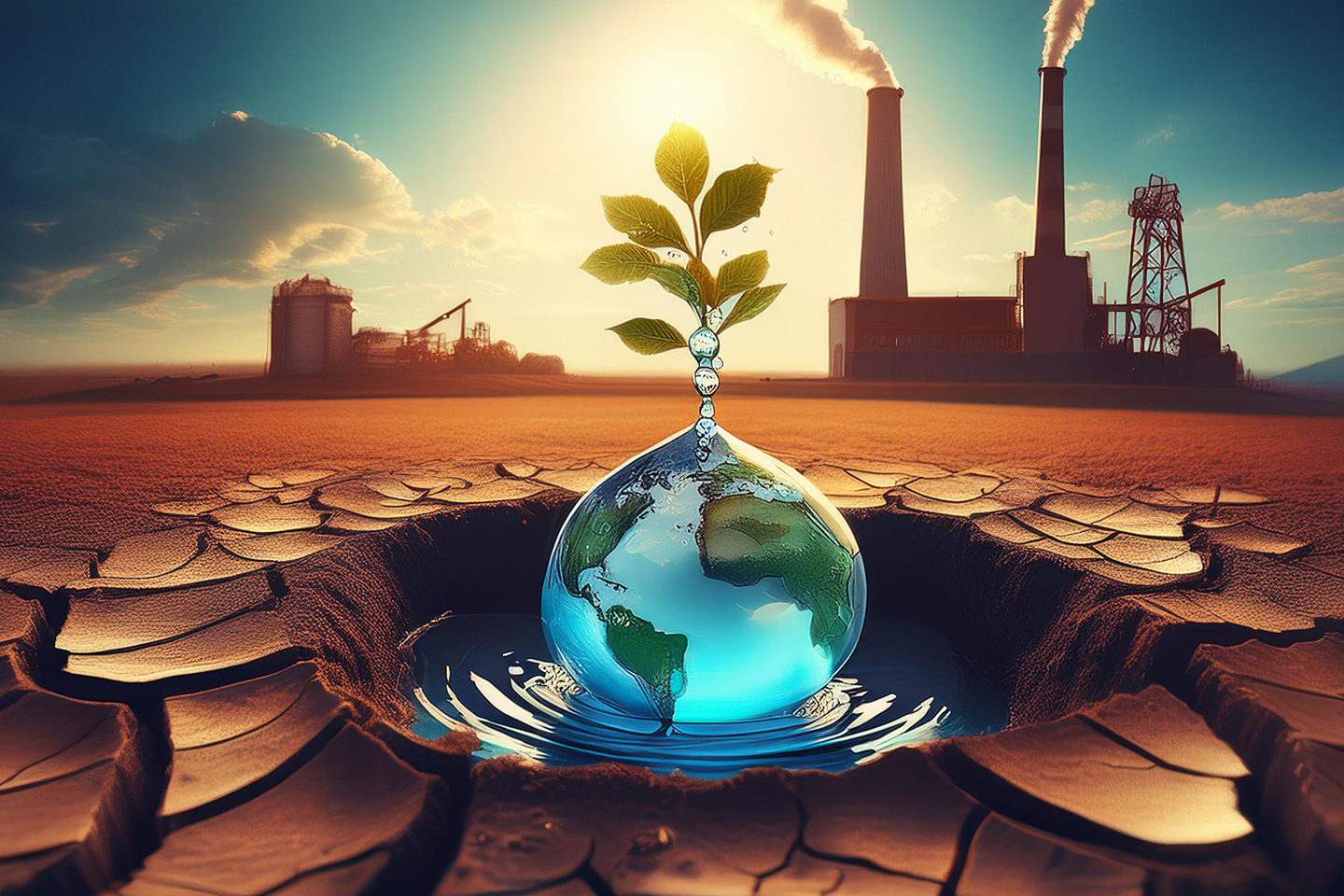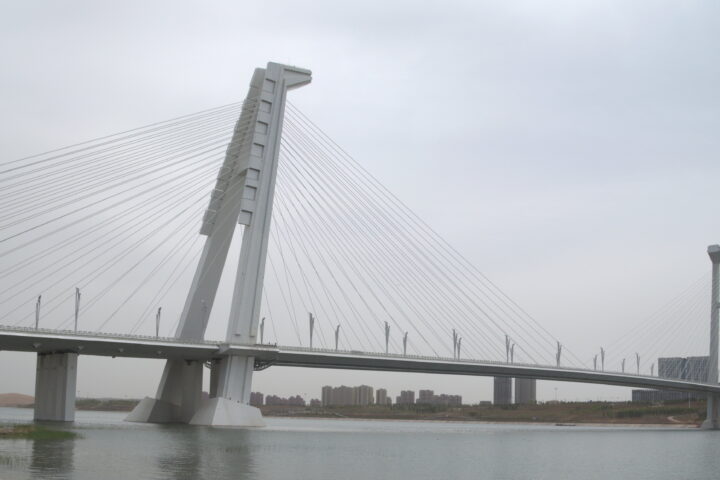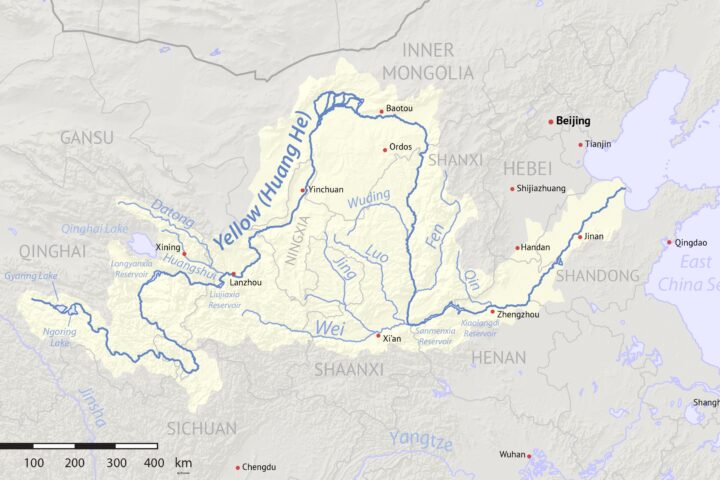Source: Firefly_AI Generated- A cracked Earth with a shrinking droplet of water in the center_Above the Earth_a factory
With the advent of technology in the last century, a new source was found to extract water and provide it to the needy. This was the groundwater stored under the Earth’s surface which has, since then, one of the most sought out sources of freshwater. The development of technology and machinery for its extraction has been superfast- we now have ready access to pumped wells which pump out around 750 to 800 cubic kilometers worth of groundwater every year.
This has helped out numerous populations. But every resource and its extraction come at the risk of depletion. And this has become a major concern today. Groundwater depletion is an inevitable consequence and many early sources have been depleted to the extent of no return. Many others have resulted in an increase in pumping costs, deterioration of water quality, damaged aquatic life, and decrease in well yields.
Today, excessive consumption of groundwater has resulted in depletion in many regions from North China, North America, the Middle East, North Africa, North India, South and Central Asia, and Australia. Amongst this tension, there are a few things you need to keep in mind:
- We are extracting more groundwater than is being recharged. For example, we are taking out 25 cubic kilometers of water in one month but it takes some years to recharge the same amount back.
- Groundwater can take hundreds and thousands of years to collect. It is not a fast process.
- This source was supposed to be a safety net in case other sources run out. But we ended up endangering the backup!

Examples
An independent study conducted by Scott Jasechko, professor of water resources at the University of California, involved analyzing some 170,000 wells and nearly 1,700 aquifers. They found that a third of these reported very severe rates of depletion. This was happening the most in regions which received little rainfall and/or had large farm industries.
We can also take India into consideration. Mainly because it is the biggest user of groundwater in the world.
India only holds 4% of the global freshwater sources. In the 1960s, the country underwent a green revolution and the demand for a proper agricultural system grew by leaps and bounds. In order to address this requirement, groundwater extraction was started and continues till day. But it had already reached a point of overconsumption years ago and now, runs rampant. Gurgaon, a city in northern India, extracted 214% of the groundwater it had recharged last year. Many districts from Punjab, another state nearby, also report grave rates of depletion and overexploitation.
Its Impact
As anyone could have guessed, the depletion of the groundwater level isn’t good news for anyone. Grave dangers lurk around the corner as this problem spreads to every other source in this world.
Right now, experts have predicted a few negatives to be prepared for:
- Our wells will dry up. This includes wells from remote areas which are the only source of freshwater for the population.
- The water quality in many areas will also deteriorate. As the groundwater level decreases, the debris and saltwater will get mixed up in it and ruin their purity.
- As we discussed above, the cost of pumping out water will also skyrocket as the demand for water would increase but the amount won’t be as much.
- When water is taken out of soil, the soil weakens, collapses, and drops. The water acting as the support below ground gets depleted.
It is a dire situation- as is the case for every other resource on the planet. And the same mantra can be used this time as well- be aware, study about it more, and start working for a better future.
Resources
- Addressing groundwater depletion: Lessons from India, the world’s largest user of groundwater. (2021, August 23). Worldbankgroup.org. https://ieg.worldbankgroup.org/blog/addressing-groundwater-depletion-lessons-india-worlds-largest-user-groundwater
- Konikow, L. F., & Kendy, E. (2005). Groundwater depletion: A global problem. Hydrogeology Journal, 13(1), 317–320.
- MSN. (2024). Msn.com. https://www.msn.com/en-gb/news/world/groundwater-depletion-accelerating-in-many-parts-of-the-world-study-finds/ar-BB1hc6Xk
- Groundwater Overuse and Depletion – The Groundwater Foundation. (2022, September 11). The Groundwater Foundation. https://groundwater.org/threats/overuse-depletion/#:~:text=Groundwater%20depletion%20is%20primarily%20caused,be%20able%20to%20reach%20groundwater.
- 5 Facts on Groundwater Depletion. (2024). United Nations University. https://unu.edu/ehs/series/5-facts-groundwater-depletion
- Pati, I. (2024, July 30). Gurgaon drew 214% of groundwater it recharged last year, study shows. The Times of India; Times Of India. https://timesofindia.indiatimes.com/city/gurgaon/gurgaon-drew-214-of-groundwater-it-recharged-last-year-study-shows/articleshow/112122831.cms
















